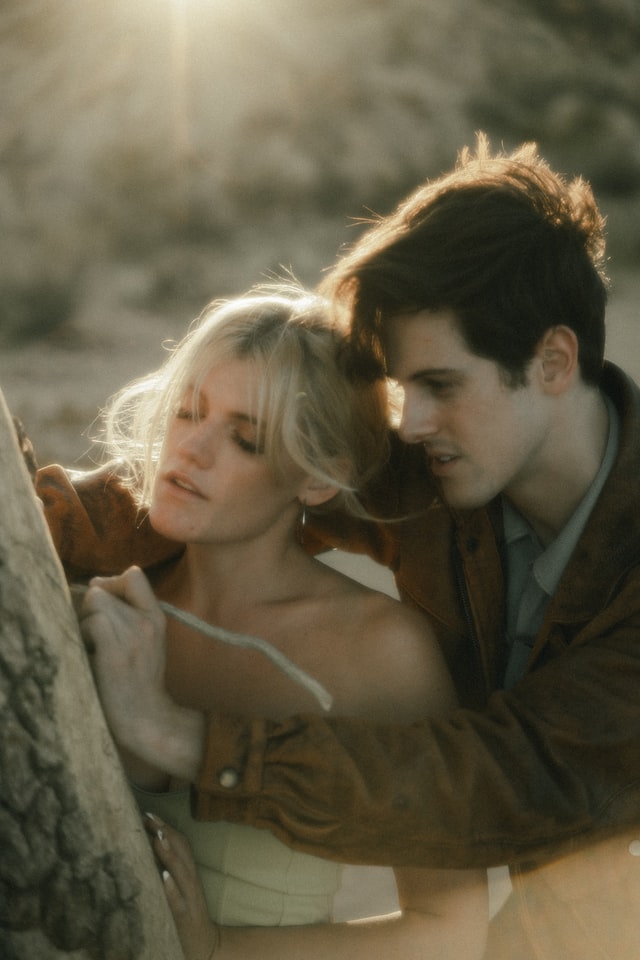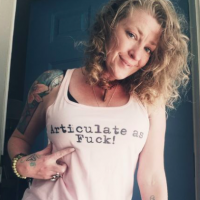Dearest men. Dearest women.
We are not so different.
We want and need each other. We are hopeful and we are hurting.
In order to forge more genuine connections with each other, we need permission to move past polite table talk and dive into the hard, holy, humorous, and human.
Yes, we want to talk about our hopes and dreams and compare our values, but we also need to talk about pain (past and current), grief, projections, and needs.
Many of us are on a conscious path to healing. We are in therapy. We are attending men’s and women’s circles and other retreats.
We are also doing a lot of projecting.
We project desired qualities onto lovers without having done the work to embody those qualities ourselves. We project past hurt from painful partnerships onto the blank canvas of the unknown and make blanket statements like: all men only want one thing or women are vain and shallow.
Stereotypes are projections and they get in the way of us seeing and feeling the truth of ourselves and each other.
The more I hear people talking about men and women, as if we’re a separate species, as if toxic masculinity is something that festers in isolation separate from the society that creates it, the deeper my sadness goes.
I have been wounded by men going back to my earliest references for relationships. I’ve been abused, abandoned, and neglected by men who were supposed to care for and protect me. There has been a lot of hurt, but I am no angel myself.
Women can be toxic, careless, and selfish too.
I can be demanding. I can be needy and dismissive. In the past, I have been manipulative. I have been cheated on, but I, too, cheated when I was younger. In my last relationship, my insecurities drove me to be controlling at times. No, it wasn’t always the men in my life. I caused pain, too.
The hurt inflicted in relationships runs deep for all of us. We spin these fairytale narratives of meeting the perfect person, but the truth is—none of us are perfect.
We talk about standards—which are important. We talk about red flags and ghosting when dating and attachment styles while trying to figure out our relationships. We pin the qualities of our dream mate on a vision board and we attend workshops to attract our perfect partner.
There is, however, a looming elephant in the room. This is something we need to talk about—as a collective—to truly change the interface for both men and women in relationships; that’s trauma.
Fear and mistrust are sad collateral—walls that we build around our wounds to preserve what is left of us and to hopefully keep out any more poison.
If we can open a conversation about how hurt, confused, and afraid we all are, then we can begin to heal. Until then, we are, more often than not, pretending. Men don’t just hurt women and women don’t just hurt men. We hurt each other.
Is it unreasonable that we—as men and women—help each other to heal?
How do we do that?
We need to listen.
In the levying of accusations at who is responsible for what, we often forget an important component—we are in this together.
We need to learn how to grieve not only for what we’ve lost and are daily losing, but for what we’ve never known. That can be hard to get a pulse on, but until we know what we are missing, we will project the shadow of unmet, often unrealized, needs onto our partners and into the world.
Too many of us have lost the core connection to our own innocence and instincts. It’s been buried and severed from us so that we’ll fit in. But what is the cost of fitting in? Often, we lose ourselves, and with that loss, we have nothing real to offer another person.
We fear someone getting close to us lest they, too, notice that we feel vacant. Moving on from partner to partner is one way to avoid facing this absence in ourselves, but the other way is sitting down, feeling the grief for what we’ve lost or haven’t known.
How do we begin the process of reclamation, of rebuilding awareness with ourselves, our feelings, and our internality? As simply as possible.
Take a deep breath into your body—the thing that is distinctly you and claim it. As you do, notice the sensations that arise. Notice any discomfort, tension, or emotions.
Breath connects us. Breath is the first thing that changes when we are wounded. It must be the place we return to begin to heal.
The gentle rise and fall of our chests and the upwelling of love for life that ensues from the opening of our raw, red, tender hearts gives rise to a roar of courage, which also gives voice to our buried pain. This is where our humanity begins. This is where love begins.
All too often, we see these lofty notions of what a relationship is supposed to look like either in movies or in imagery that grandly displays a man and woman embracing—chakras spinning all aglow. Where is the humanity in this imagery? Where is the real?
Show me the warmth of a couple doing dishes together or maybe even having an argument. That is a real human relationship. I don’t need to see us as dressed up effigies of gods and goddesses.
What I want is a human love, a sweet, raw, messy, awkward love. A love that stirs my soul and wakes my wounds.
I want a love that bleeds and laughs and cries with me.
I don’t want an escapist love, a love that tells me to raise my vibration and everything will be fine. I want a grounded love, a love that tells me quietly, sometimes hesitantly, of its hopes and dreams and troubles.
I want a love who keeps in mind the things that matter.
I want a vulgar love, a love who sends weird texts and worships my body, a love who slowly shows me his heart and who admits he’s afraid. I want this because I want the freedom to be this.
We need the freedom to f*ck up with each other, to make mistakes, to move closer, and then away. We need time, care, and patience to mend that which had been disrupted within us and between ourselves and others.
Healing is not lofty work, this is dirty work. This is down in the trenches, mud on our face, dirt beneath our nails, nitty-gritty work.
Healing—even when messy—doesn’t have to be a burden, because when we are there in the mud together, we can still play and we get to wrestle.
~


 Share on bsky
Share on bsky





Read 9 comments and reply